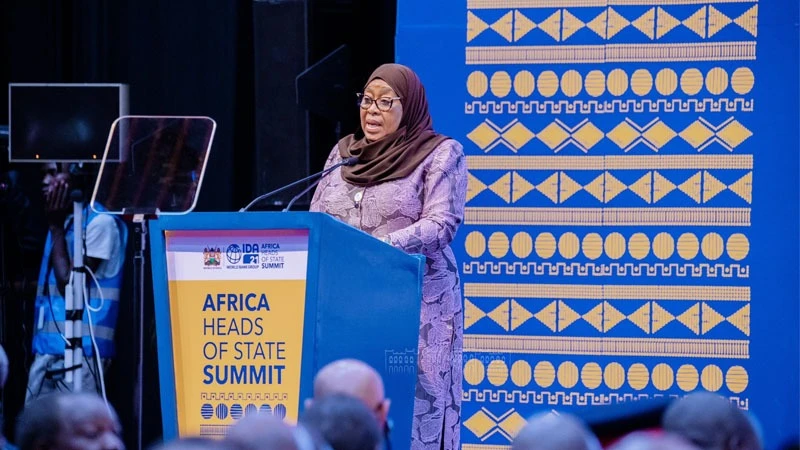
By Guardian Reporter , The Guardian
PRESIDENT Samia Suluhu Hassan has underscored the importance for the forthcoming World Bank’s International Development Association (IDA-21) cycle to
focus on providing more concessional loans such as 50-year loans to African countries, to fuel the continent’s development.In remarks to the IDA21 replenishment summit in Nairobi, the president called for an ambitious replenishment that matches Africa’s development aspirations with the resources it needs.
Issuing long-term loans will provide greater space to African countries to address competing development needs, she stated, pointing at the transformative potential of IDA support for countries to transform and graduate.
“This is what Africa expects, the same spirit to guide us ambitiously in the IDA-21 replenishment,” she emphasised, underlining that in the forthcoming IDA-21 cycle, “it is critical that policies are simplified and occupational processes are streamlined.”
IDA-21 replenishment has a bearing on access to financing development, the indirect cost of finance and achieving development objectives, she said, affirming that the meeting needs to address investment in human capital as it drives innovation and growth.
Africa needs a transfer of technology and technical know-how, she stated, referring to the July 2023 summit where Tanzania in collaboration with the World Bank hosted the Africa summit on the state of human capital.
“We committed to investing in people for improving productivity and building inclusive and resilient economy and we believe the commitments are relevant and merit IDA’s support,” the president declared.
She commended IDA partners for their support, urging them to honour their pledges to foster economic development and improve living conditions.
Back in December, Tanzania hosted the IDA-20 mid-term review meeting which among other things highlighted the impacts of IDA financing, she said, stressing the need for an ambitious IDA-21 replenishment quest.
At the summit, Tanzania reiterated its appreciation for IDA’s collaboration as it has helped to improve maternal and child health indicators, rural electrification, access to safe drinking water and economic recovery, she said.
A collective effort is needed to highlight IDA financing success stories and the potential that IDA still has, as IDA resources can help its recipients to leverage credit from other partners, she said.
An example is the Msimbazi Basin Development Project which benefited from World Bank support at $200m and later leveraged an additional $60m from other partners, she said, advocating building on the successes obtained during IDA-20 in the IDA-21 replenishment dialogue.
“We are doing so at a time when Africa and the world are still facing the effect of multiple crises coupled with significant shortfalls in development finance and shrinking physical space,” she said, insisting that “what is inquired in going forward is obtaining more concessional resources.”
Officiating at the summit, Kenya’s President William Ruto underscored the continent's urgency for change and its desire to capitalize on this pivotal moment of opportunity.
He passionately advocated for stronger donor contributions to IDA-21, emphasizing its role in driving transformative change not just in Africa but around the world.
“Our people and we, the leaders of Africa, are impatient for change and we want to transform the continent at this moment of tremendous opportunities. IDA has been and must remain a dependable development partner for Africa, and we urge stronger donor contributions to IDA-21 so that together we can drive transformational impact not only for a better Africa, but also for a better world,” he stated.
A post-summit communique detailed “leaders’ unwavering commitment to strengthen governance, unlock private sector potential for job creation, mobilize domestic resources, and deliver on climate change promises.”
Additionally, they prioritized increased energy and digital access, alongside enhanced resilience to climate change and conflict.
Currently, IDA supports 75 countries, 39 of them in Africa. Over 70 percent of its resources are directed toward the continent, playing a vital role in achieving the World Bank Group’s goal of bringing electricity to 250 million Africans by 2030.

No comments:
Post a Comment